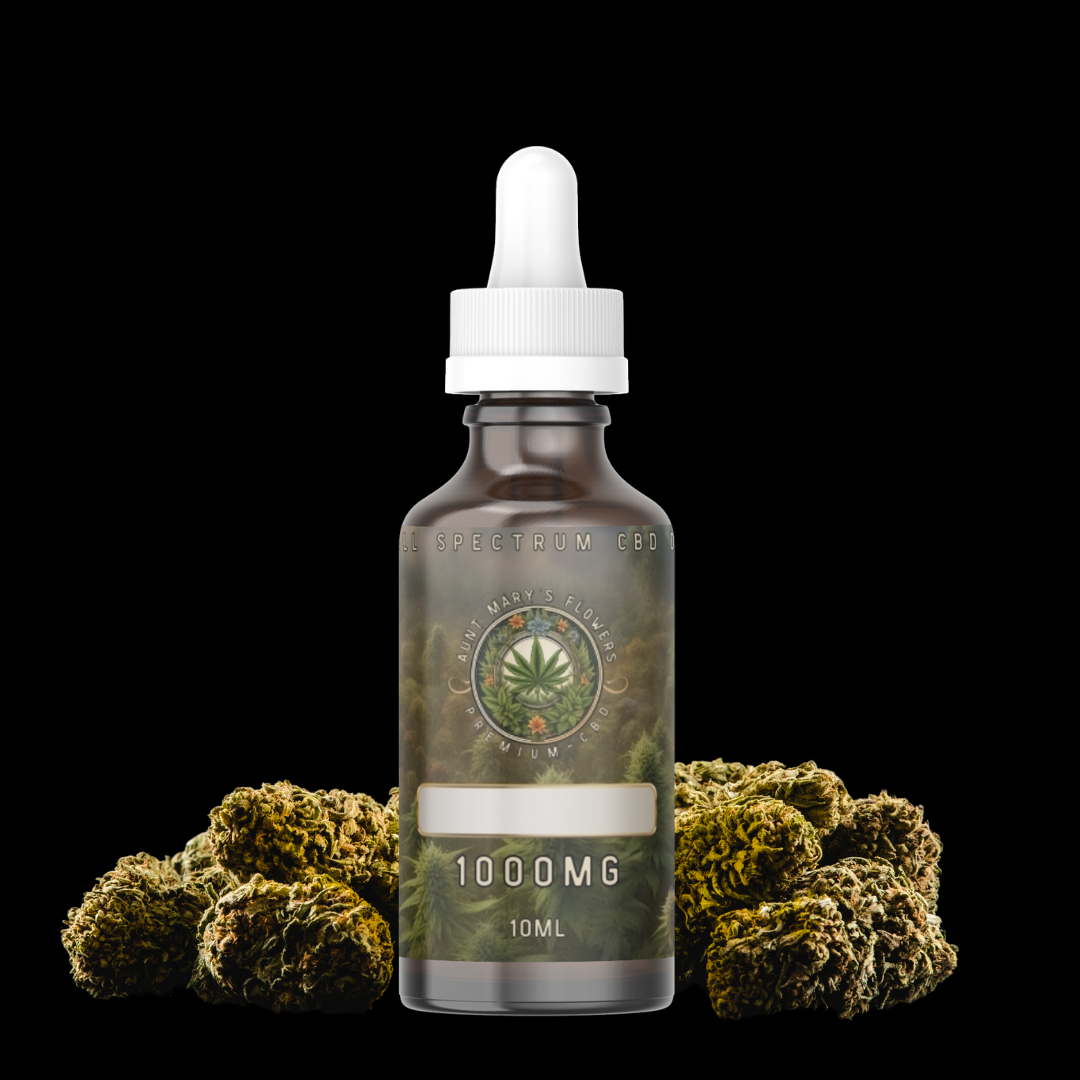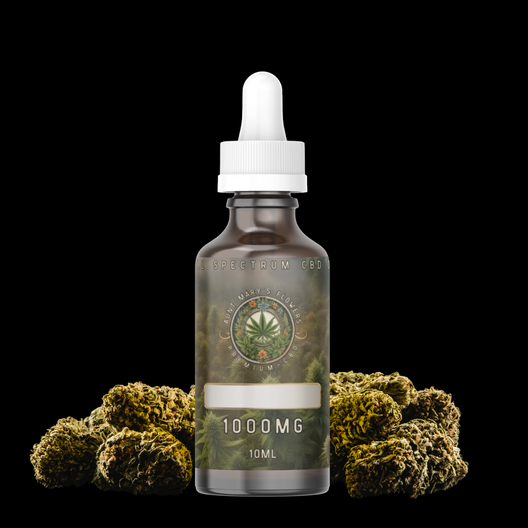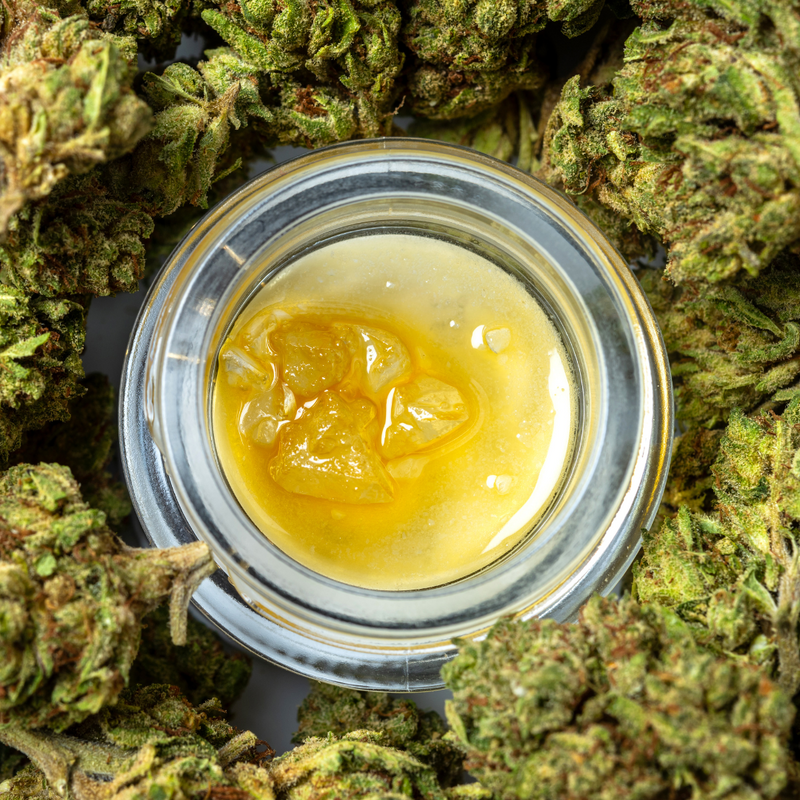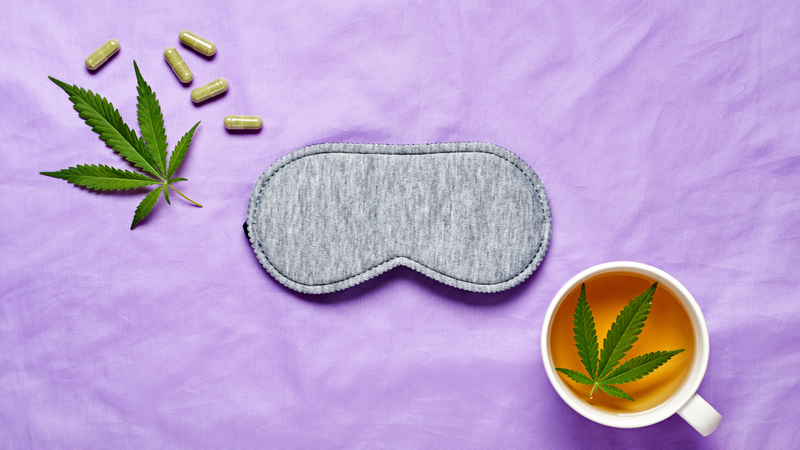What is CBD oil?
CBD oil, short for cannabidiol oil, is a natural compound derived from the hemp plant. Unlike its cousin, THC, CBD does not have any psychoactive effects, meaning it won't make you feel "high." Instead, CBD oil offers a wide range of potential health benefits. Research suggests that CBD oil may help alleviate symptoms of anxiety, reduce inflammation, and even provide relief from chronic pain. Additionally, CBD oil has shown promise in treating epilepsy and other neurological disorders. With its growing popularity, it's important to understand the potential benefits and uses of CBD oil, as well as any potential risks or side effects.

How does CBD oil work in the body?
CBD oil interacts with the body's endocannabinoid system, a complex network of receptors and enzymes that plays a crucial role in maintaining homeostasis. When CBD oil is consumed, it binds to these receptors, particularly the CB1 and CB2 receptors, which are found throughout the body. This interaction helps regulate various bodily functions, such as pain perception, inflammation, mood, and sleep. Additionally, CBD oil can also indirectly affect the production of endocannabinoids, which are naturally occurring compounds that help regulate the body's processes. Understanding how CBD oil works in the body is essential in harnessing its potential therapeutic benefits and tailoring its use to individual needs.
The potential benefits of CBD oil for pain relief
CBD oil has gained significant popularity in recent years, and one of its most promising potential benefits is its ability to provide pain relief. Research has shown that CBD interacts with the body's endocannabinoid system, which plays a crucial role in regulating pain perception. By targeting specific receptors in the brain and immune system, CBD oil may help reduce inflammation and alleviate chronic pain. Furthermore, unlike traditional pain medications, CBD oil is non-addictive and does not carry the same risk of side effects. This makes it a potentially safer and more natural alternative for individuals seeking relief from various types of pain, including arthritis, neuropathic pain, and even chronic conditions like fibromyalgia.
CBD oil for anxiety and stress management
CBD oil has gained popularity in recent years for its potential benefits in managing anxiety and stress. The key lies in its interaction with the endocannabinoid system, a complex network of receptors in our bodies that helps regulate various functions, including mood and stress response. CBD, or cannabidiol, is one of the many compounds found in the cannabis plant, and unlike its counterpart THC, it does not produce a psychoactive effect. Research suggests that CBD may help reduce anxiety by interacting with serotonin receptors in the brain, promoting a sense of calm and relaxation. Additionally, CBD oil has shown promise in helping individuals cope with stress by reducing the release of stress hormones and promoting a more balanced state of mind. While more studies are needed to fully understand the mechanisms behind CBD's effects on anxiety and stress, its potential as a natural and holistic remedy is certainly worth exploring.
Can CBD oil help with sleep disorders?
CBD oil has gained popularity in recent years for its potential therapeutic benefits, and one area where it has shown promise is in helping with sleep disorders. Studies have suggested that CBD oil may have a positive impact on sleep by reducing anxiety and promoting relaxation. CBD interacts with the endocannabinoid system in the body, which plays a role in regulating sleep-wake cycles. By promoting a sense of calmness and relaxation, CBD oil may help individuals struggling with sleep disorders, such as insomnia, achieve a more restful night's sleep. While more research is needed to fully understand the effects of CBD oil on sleep, the preliminary findings are encouraging and highlight its potential as a natural sleep aid.
CBD oil for managing symptoms of epilepsy
CBD oil has gained significant attention for its potential benefits in managing symptoms of epilepsy. Epilepsy is a neurological disorder characterized by recurrent seizures, and traditional treatment options may not always be effective for everyone. CBD oil, derived from the cannabis plant, has shown promising results in reducing the frequency and severity of seizures in some individuals with epilepsy. The cannabinoids present in CBD oil interact with the body's endocannabinoid system, which plays a crucial role in regulating various bodily functions. This interaction helps to restore balance and alleviate symptoms associated with epilepsy. It's important to note that CBD oil should be used under the guidance of a healthcare professional, as dosage and administration can vary depending on the individual and their specific condition.
The potential anti-inflammatory properties of CBD oil
CBD oil has gained significant attention in recent years for its potential anti-inflammatory properties. Inflammation is a natural response by the body to protect against injury or infection, but chronic inflammation can lead to a wide range of health issues. CBD oil has been found to interact with the body's endocannabinoid system, which plays a crucial role in regulating inflammation. By targeting specific receptors in the immune system, CBD oil may help reduce inflammation and alleviate symptoms associated with conditions such as arthritis, chronic pain, and even acne. This natural remedy offers a promising alternative to traditional anti-inflammatory medications, with minimal side effects.
CBD oil for skincare and acne management
CBD oil has gained significant popularity in recent years, not only for its potential health benefits but also for its effectiveness in skincare and acne management. The use of CBD oil in skincare products has shown promising results in reducing inflammation, soothing irritation, and promoting overall skin health. Its anti-inflammatory properties can help calm acne breakouts and reduce redness, while its antioxidant properties can protect the skin from environmental damage. Additionally, CBD oil is rich in essential fatty acids, which can moisturize and nourish the skin, leaving it looking and feeling healthier. Whether used topically or ingested, CBD oil offers a natural and holistic approach to skincare and acne management.
Is CBD oil safe to use?
CBD oil is considered safe to use for most people, but it is important to understand the potential risks and side effects. CBD, or cannabidiol, is a non-psychoactive compound found in the cannabis plant that has been shown to have various health benefits. It is often used to alleviate pain, reduce anxiety and depression, and improve sleep. However, it is important to note that CBD can interact with certain medications, so it is always advisable to consult with a healthcare professional before incorporating it into your routine. Additionally, while CBD is generally well-tolerated, some people may experience side effects such as dry mouth, drowsiness, or changes in appetite. Overall, when used responsibly and under medical guidance, CBD oil can be a safe and effective addition to your wellness regimen.
Summary of the benefits of CBD oil
CBD oil has gained significant popularity in recent years due to its numerous potential health benefits. It is derived from the cannabis plant but does not contain the psychoactive compound THC, making it a safe and legal option for many individuals. CBD oil has been found to have various therapeutic properties, including its ability to reduce anxiety and stress, alleviate pain and inflammation, improve sleep quality, and even potentially treat certain neurological disorders. Additionally, CBD oil is known for its antioxidant and anti-inflammatory properties, which can contribute to overall health and well-being. With its wide range of potential benefits, CBD oil has become a popular natural remedy for many people seeking alternative treatments for various health conditions.






























































